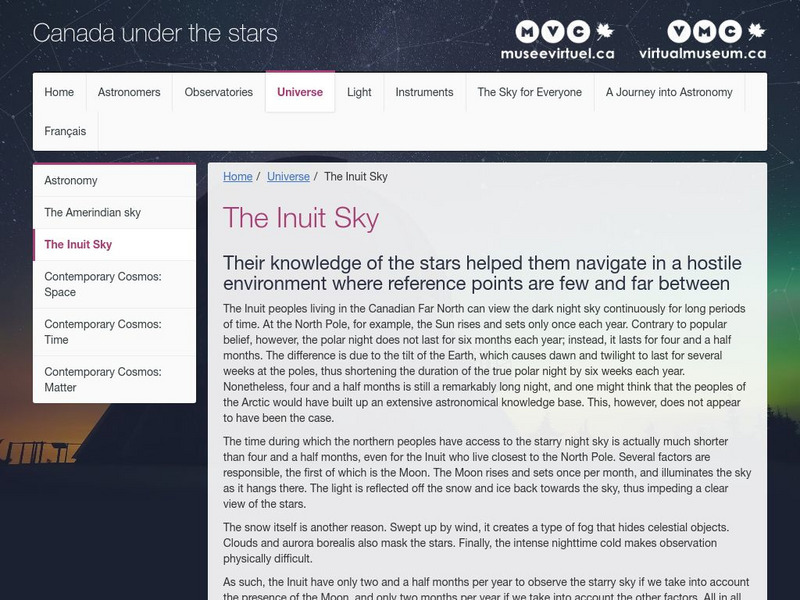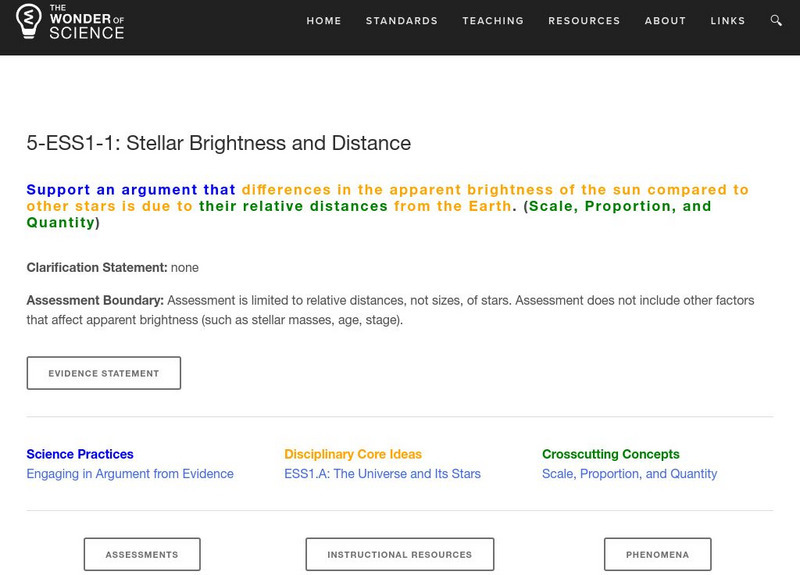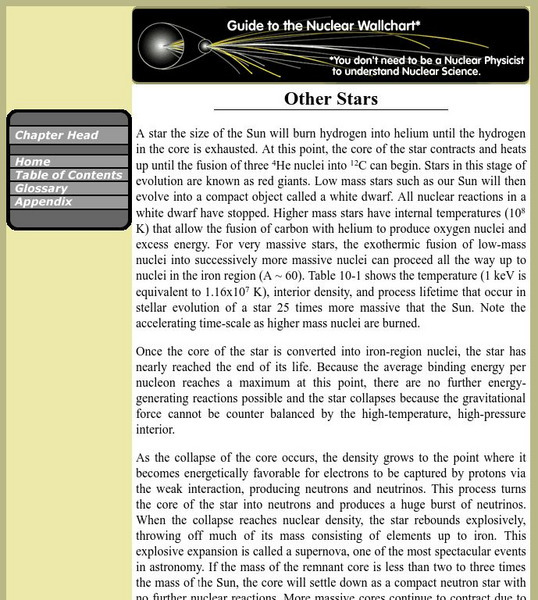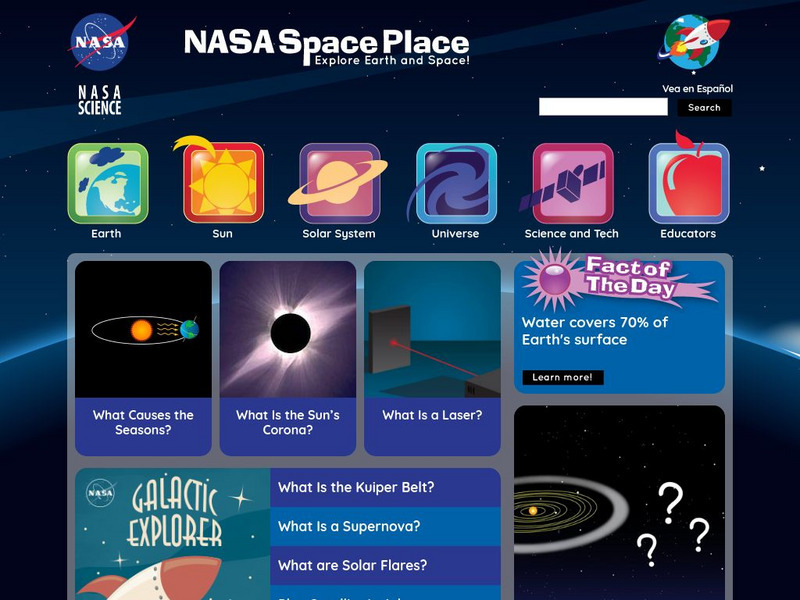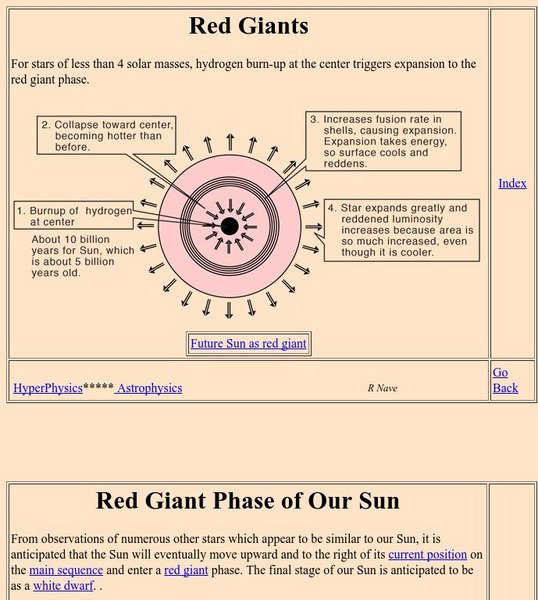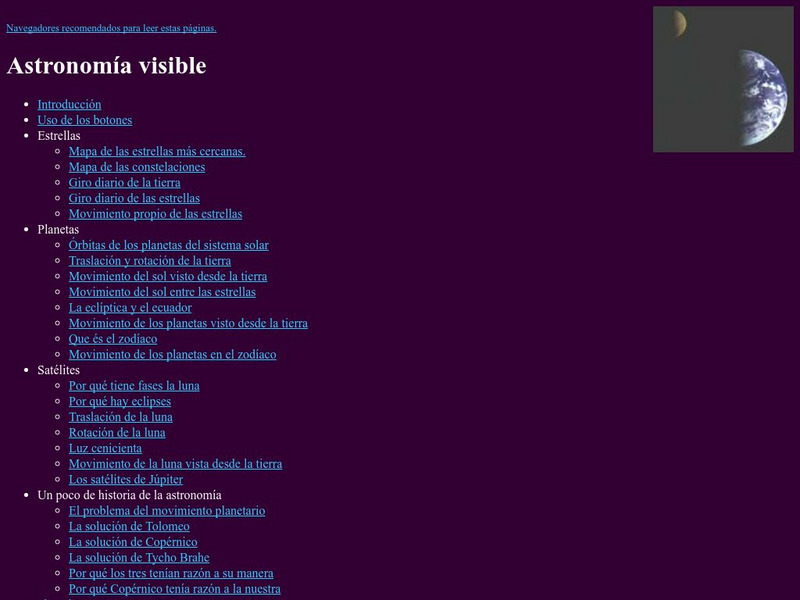Hi, what do you want to do?
Other
Vmc: The Inuits the Sky of the First Inhabitants
The Inuit's knowledge of the stars helped them navigate in a hostile environment. In their legends, they did view the the Sun as being a woman, and the Moon as a man. Several stories are shared here.
Ducksters
Ducksters: Astronomy for Kids: Stars
Kid's learn about the science of stars like our Sun. Giant hot balls of gas and energy made mostly of hydrogen and helium.
The Wonder of Science
The Wonder of Science: 5 Ess1 1: Stellar Brightness and Distance
Students will learn about stellar brightness and distance to be able to support their argument about the apparent brightness of our sun compared to other stars due to their distances with these lesson plans.
NASA
Nasa Star Child: Star Child
StarChild from NASA defines and describes the Solar System in a simple and easy-to-understand manner. The website is broken down into two versions for the student, grade school and junior high.
Nine Planets
The Nine Planets: Sun Picture List
Various pictures and movies of the sun. Download some of these files and then give a presentation to your class explaining the solar phenomena.
Other
Yohkoh Public Outreach Project: Yohkoh Movie Theater
The Yohkoh Public Outreach Project provides images, movies, and tours depicting our nearest star, the Sun. Content includes a wealth of information, learning activities, and much more.
NASA
Nasa: Living With a Star
This NASA educator's guide provides teachers with activities, resources, and materials to educate students about the Sun.
NASA
Nasa Space Place: Sun
Test your knowledge about the sun with games and activities designed to help explore what you know.
Mocomi & Anibrain Digital Technologies
Mocomi: What Is a Star?
Learn about stars, how they are formed, the biggest and smallest star, what they look like, well-known stars and constellations, and other interesting facts.
Other
Kid Power: Astronomy for Kids
Young children can find facts about the Solar System, the Sun, meteorites, stars, galaxies, planets, our moon, comets, asteroids, and space exploration. Pages offer clear photos and bullet-point information, which is easy to read and...
ClassFlow
Class Flow: Calendar
[Free Registration/Login Required] The history of our calendar is presented through the passage of time with complete cycles of seasons in ancient history providing a starting place. Complete cycles of seasons are discussed and the...
NASA
Nasa Star Child: The Sun
A site for users to learn more about the Sun. Site includes a song, movie and facts about the Sun.
NASA
Nasa Star Child: Stars
This page details the life cycle of a star, and includes information on medium-sized and massive stars, plus a glossary and a question.
Lerner Publishing Group
Lerner Classroom: Teaching Science Through Literacy
In this lesson plan, students will gather evidence to support the argument that differences in the apparent brightness of the sun compared with other stars is due to their relative distances from Earth. Students will also write texts in...
Ministerio de Educación (Spain)
Observaciones Y Modelos en Astronomia
How does the length of the day change? How does the height of the sun change? Do we always see the same star? The answer to these questions and different observations about the sun, the moon and the stars that we can do from earth can be...
Ministerio de Educación (Spain)
Ministerio De Educacion: Una Estrella Llamada Sol Modulo Iv Unidad 1
In this module you will study the structure and composition of the star closest to us: the Sun.
Other
Christopher Crockett: The Astronomy Word of the Week Is "Barycenter"
While astronomers and philosophers have long mused on the possibility of other solar systems, the first planets confirmed to orbit a star other than our Sun weren't found until 1992. The reason it took so long is that it's really hard!...
PBS
Pbs Learning Media: Solar System Scale Model
Teach the concept of scale models and the size of the solar system through this extensive lesson plan. Students will learn about scale models, estimate which objects to use to create a scale model of Earth and Sun, and figure out how far...
Lawrence Berkeley National Laboratory
Berkeley Lab: Other Stars
Describes other stars besides the sun in our galaxy and the major stages in the evolution of a massive star.
University of Toronto (Canada)
Selected Poems of John Donne
Links to 42 poems by the English metaphysical John Donne (1572-1631).
NASA
Nasa: The Space Place
This site from NASA's Space Place is geared towards early elementary learners. It offers detailed instructions for crafts and activities related to space, games and a teacher resource area. Students can also ask an expert at this site.
Georgia State University
Georgia State University: Hyper Physics: Red Giants
Describes the red giant star's development stages and the scenario of our sun as a red giant. Diagrams are used to present the information.
CK-12 Foundation
Ck 12: First Grade Science: Sky Patterns
[Free Registration/Login may be required to access all resource tools.] Describes patterns that can be found in the movement of the Sun, Moon, and stars.
Ministerio de Educación (Spain)
Ministerio De Educacion: Astronomia Visible
This site has maps of the nearest stars and constellations. Earth and star daily rotation, proper motion of the stars and many other topics about the solar system are also shown.Read phonetically





